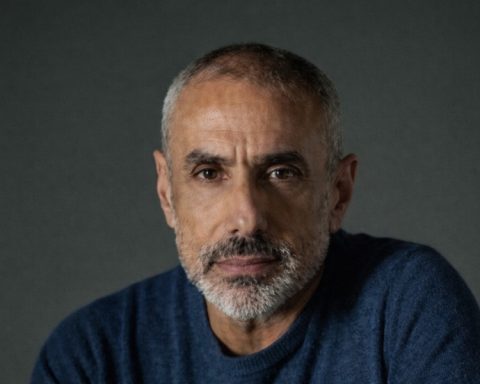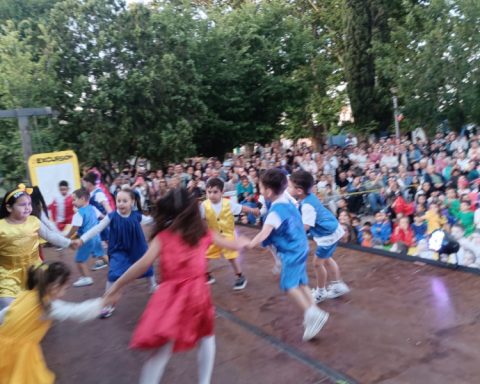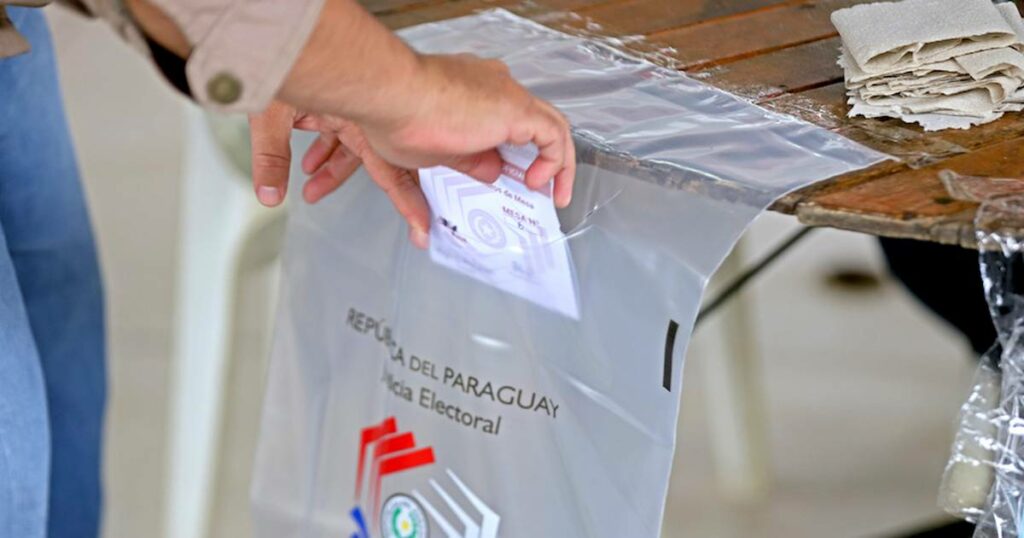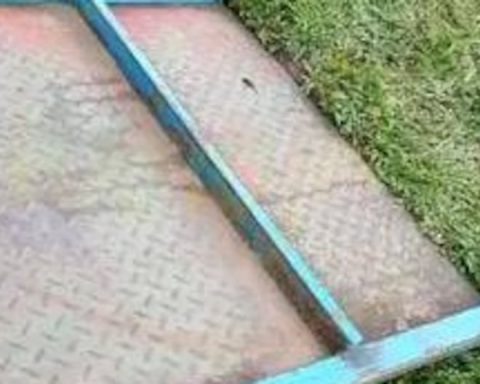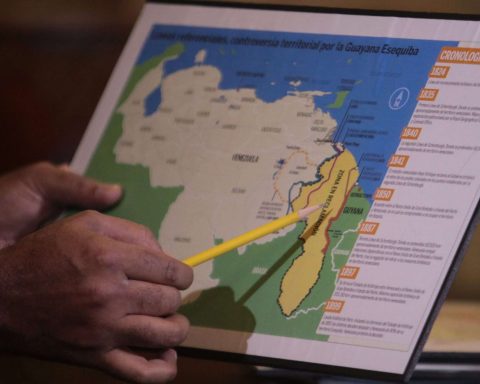In a building the entrance is with a input tagthe garage is opened and closed remotely and there is a totem in the hall that answers questions. In another, a human goalkeeper opens the front door to those who live there and to visitors, receives invoices and parcels, and picks up the garbage bags from the apartment doors. The two realities coexist in Montevideo and in other departments of the country. Those who prefer the virtual doorman do so for the cost of service and 24-hour attention. In the other case, the doorman becomes one more who collaborates with the tasks of the members of all the apartments.
The virtual goal supply grows day by day and it is already common to observe the external surveillance cameras and the totem in the hall of the buildings.
One of the companies that offers virtual goal is foxsys. It is presented as a company that generates significant savings in common expenses, 24/7 security and state-of-the-art services.
Juan Martin Fernandez is co-founder and current manager. Foxsys began its activity 12 years ago dedicating itself to electronic security systems andn 2017 the migration to the virtual goal began.
From that year to the present they added surveillance and virtual security in more than 300 buildings.
One of the services offered is the placement of perimeter surveillance cameras and megaphones to dissuade any person outside the building who wants to violate the established perimeter.
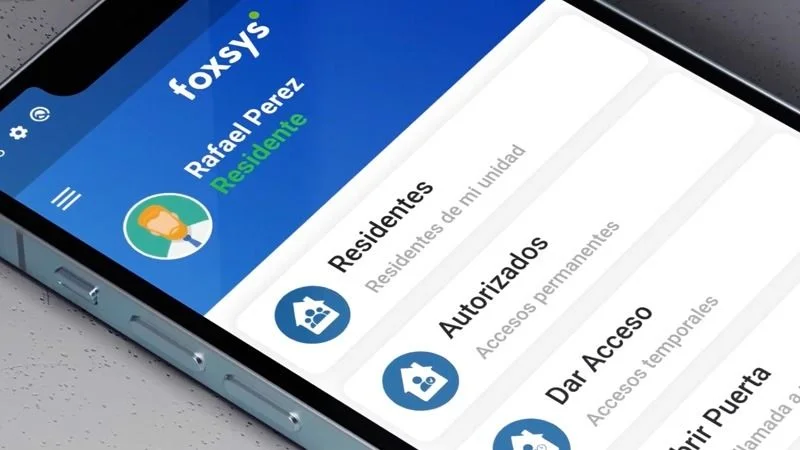
foxsys
virtual goal
another is for the entrance to the building that is done with a proximity key fob that is coded for each person or with a pin. The third is the totem. Clients can opt for any of the services individually or for a package that includes all three.
“The main thing is perimeter security, access control, being able to open and close pedestrian and garage doors, and assistance with daily building problems such as breakages. The totem is an optional element that contributes to security”, says Fernández.
One of the services that Foxsys provides is a direct connection to the Ministry of the Interior with minimal response time. This option becomes necessary in the event of any internal problem or incident that occurs inside the building. “To offer that you have to be approved by the Ministry of the Interior. Our company is, ”he indicates.
“It is a system of direct integration as in the ministry that allows us to dispatch a police mobile from our monitoring center through a secure internet connection. This ensures that the mobile can be sent in the shortest possible time ”, he points out.
“The company (Foxsys) has to verify the incident before dispatching the mobile. It is a joint effort with the Ministry of the Interior. The response time of 911 when we go directly to the Unified Command Center (of the ministry) is excellent, ”he points out.
González expresses that the decision to hire virtual services is more and more frequent. “It has naturalized a lot. People get used to it quickly. It allows a very adequate level of costs, it costs four or five times less than a traditional concierge service and it is highly technological”, he explains.
The calculation made by the companies in the sector is that For 24-hour daily care in a building, four physical porters are required, with salaries, social charges, bonuses, licenses and vacation salaries. So, therein lies the cost difference between the virtual and the physical. The company has a permanent team of between 10 and 12 people who monitor the installed cameras. The total staff is 80 workers.
Another company that offers virtual services is Masterson Security. The business manager, gonzalez claudiopoints out that the company began its activities 25 years ago and six years ago began to dedicate itself to the remote concierge business.
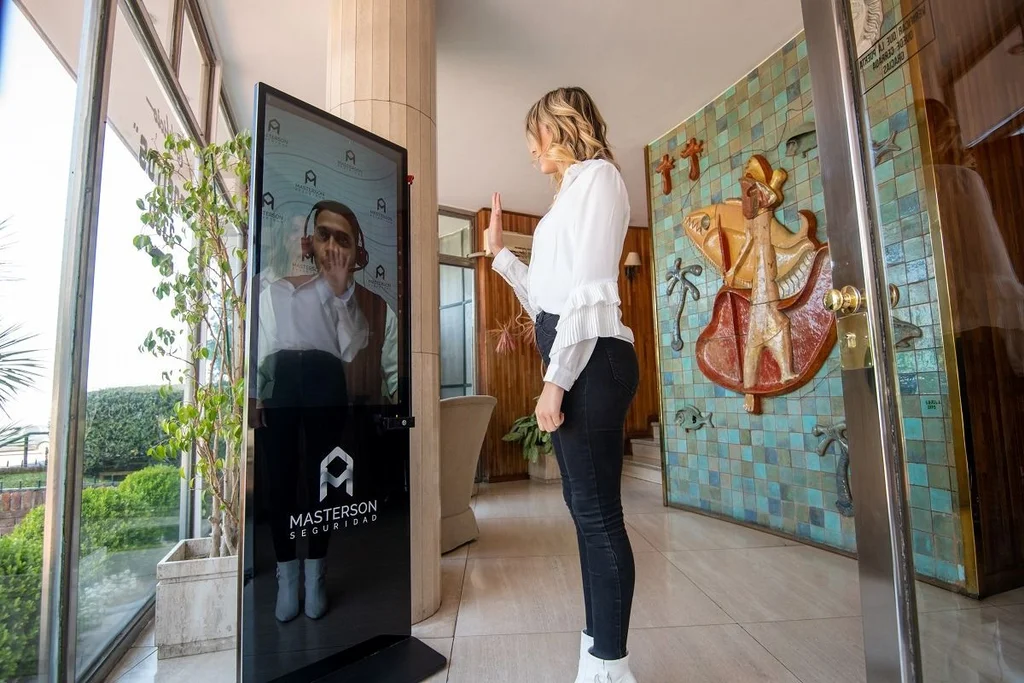
Masterson Security
Masterson’s Totem
“The company is surveillance and in fact works more with physical personnel than with virtual gates. We saw that the doorman’s face-to-face was being changed and we we update. It was what was coming, ”she comments. Six months before starting the virtual goal, one of Masterson’s directors traveled to Paraguay and found that it was already a boom in that country.
The company offers all three services. Access control, with placement of equipment for electronic doors that open with tags and also with facial identification. The second is monitoring, which is more linked to surveillance. Includes cameras with analyticsloudspeakers to make calls for attention in the street, alarms and sensors at all accesses to check that they are correctly closed. The third is the totem.
“At the company we joke and say that all we need is to walk the dogs. Because nothing is missing. Boilers are lit, barbecues are managed, all the services of the building. In addition, it increases security in the place ”, he relates.
Claudio informs that in the camera monitoring sector around 16 people work per shift. “It is covered 24 hours. There are no holidays, May 1, there is nothing. There is always coverage, ”she says.
One of the different services that Masteron offers is facial recognition to enter the building. “There are people who do not want to walk with a key or manipulate technology. In this case, you don’t have to stop in front of the viewfinder, passing a little slower already identifies the person. In this way, the key is avoided and to exit there is a button on the inside ”, he explains.
The cost calculation is the same as that used in the sector. If the goal is face-to-face, four people are needed. “You’re talking about $200K to $240K per month. The virtual goal will cost you $40,000 per month“, it states. The most required service of the company is the totem.
“Generally, the virtual goal is hired to lower common expenses. Time goes by and it is becoming more and more common. It is something that came to stay and that is going to be in all the buildings”, he maintains.
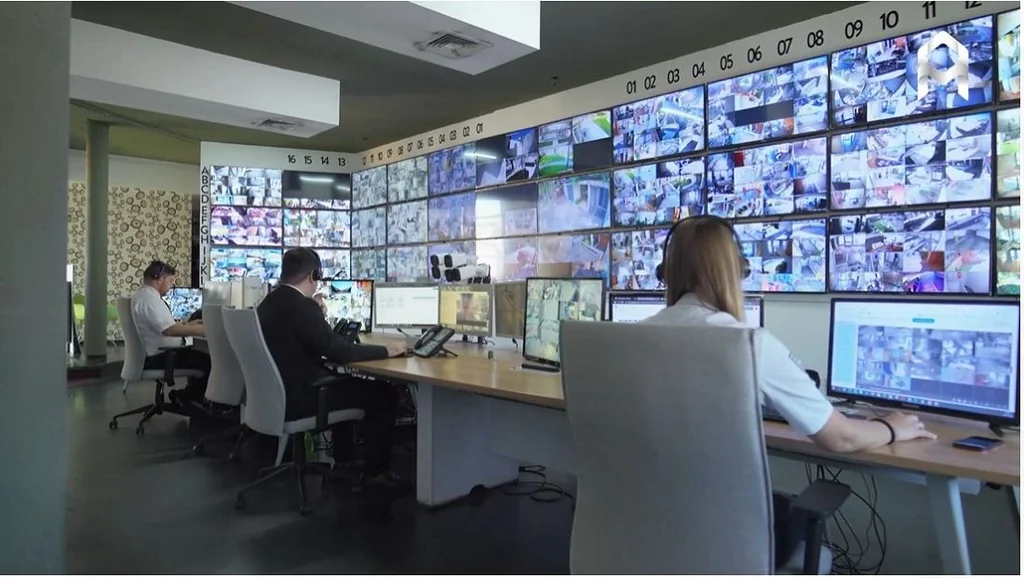
Masterson Security
Masterson’s monitoring room
900 people work at Masterson, including guards, administrators, monitoring and technical equipment, among others.
On the sidewalk in front
The building located on Guayabos street has the front door open. In the hall there is a desk with a television and a monitor where several cameras installed in different areas can be seen. behind the desk is Oscar Fernandez. He has been the goalkeeper for 21 years. He is also the president of the Apartment House Janitors Association (APCA). In that building there are 61 apartments and one of them is occupied by Fernández.
“The doorman is like the key to the building. In my case I am one of the family. You have to know everything, always be at the command of those who need something. Receive parcels, deliveries, medicines, envelopes, letters, ”he says.
The conversation with him is in the garage at the end of the hall, past the elevators. He stands in a place from which he can see the front door and practically does not take his eyes off her when he answers a question. A neighbor comes out and congratulates him on the game that Nacional won the night before.
“you’re a bit of a psychologist, The goalkeeper has more than one pattern. If there are 60 apartments, any of the co-owners can ask you for something. You have to try to get along with everyone and that no one is dissatisfied. ”, He explains.
Fernandez He has the key to several apartments and also to cars.. He works Monday through Friday from 11:00 a.m. to 8:00 p.m. It states that the gatekeeper cannot be changed by a virtual tool.
“The machine is not going to take out your garbage, it is not going to see if the water tank overflowed or assist someone who feels bad inside an apartment ”, he lists.
Remember that during the pandemic his activity increased. “I was the one who received the medicines, the doctors. There were people who were hospitalized in the apartment and couldn’t get out. There you had to do everything. There is the figure of the goalkeeper, ”he says with some pride.
The minimum goalkeeper salary is $32,292. They also charge items for garage tasks, for the elevators and for taking care of the garden in case there are any. With those payments, Salary is between $45,000 and $48,000..
“They say that the doorman is expensive for the building. They have to pay for her clothes, her license, social charges. But the totem does not do what you do ”, he points out.
He relates that several of those who live in the building finished their careers as doctors, notaries, physicians or lawyers. “They have come and taken photos with me. At the end of the year they give you gifts in recognition of what you did,” she comments.
He also remembers an anecdote with a student who lived in one of the apartments. She “She was studying medicine and was interning at the Pasteur Hospital and others. When she returned, after midnight, She called me when she was on the bus so that I would meet her at the stop on 18 de Julio and accompany her to cross the alley of (Emilio) Frugoni. I would go look for her and accompany her to the building, ”she says.
“When it was received, the parents told me: you are part of my daughter’s graduation and also the family. And we took a photo at the entrance to the building, ”she complements.



